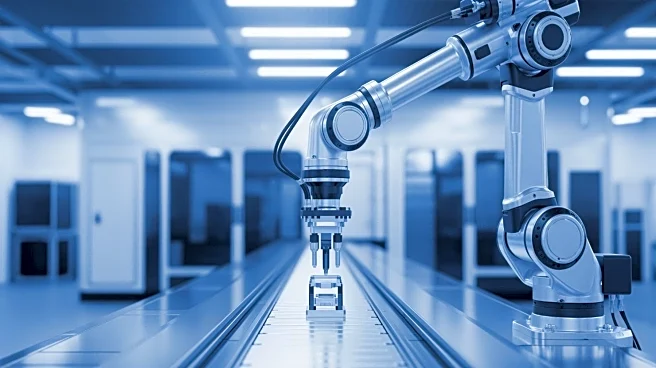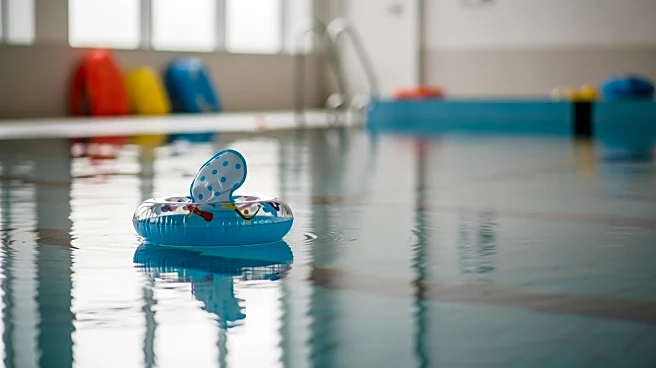What's Happening?
Fabric8Labs, a company specializing in Electrochemical Additive Manufacturing (ECAM), has announced a $50 million funding round aimed at expanding its U.S.-based manufacturing facilities. This expansion will increase the company's production capacity
from 5 million to 22 million components annually. The funding was led by NEA and Intel Capital, with participation from existing investors such as Lam Capital and new investors including Marunouchi Innovation Partners and SK hynix. The investment will support the growth of Fabric8Labs' team and production capabilities, particularly in areas like AI/HPC thermal management, RF/wireless communications, and power electronics.
Why It's Important?
The expansion of Fabric8Labs' manufacturing capacity is significant for several high-growth industries, including AI, wireless communications, and vehicle electrification. By increasing production capabilities, the company aims to meet the growing demand for advanced components that are critical for these sectors. The investment also highlights the importance of U.S.-based manufacturing in reducing supply chain risks and ensuring high-quality production standards. This development could lead to enhanced innovation and deployment of advanced systems, strengthening the U.S. position in global technology and manufacturing markets.
What's Next?
With the new funding, Fabric8Labs plans to ramp up its production and expand its team across various engineering disciplines. The company is poised to redefine manufacturing processes with its ECAM technology, which offers high precision and scalability. As Fabric8Labs continues to grow, it may attract more partnerships and investments, further solidifying its role in the advanced manufacturing sector. The expansion could also lead to increased collaborations with industries seeking innovative solutions for complex challenges.
Beyond the Headlines
Fabric8Labs' ECAM technology represents a shift towards more sustainable and efficient manufacturing processes. By leveraging electroplating principles, the company can produce high-resolution metal parts without expensive post-processing, potentially reducing environmental impact. This approach aligns with broader industry trends towards sustainability and could influence future manufacturing practices.


















